THE MUSICARTA HANON
"Mind the Gap"
Page One
The original Hanon exercises for the most part follow the shape of the (right) hand and place the principal 'skip' (third) between the thumb and the index finger.
Melodies, however, and the general run of piano playing, have no reason to be so considerate!
Varying the Hanon No.1 pattern by moving the skip to between RH fingers 2 and 3, or 3 and 4 (and so on) offers a useful opportunity to prepare the hand for a greater variety of demands.
Download the music for the Musicarta Mind the Gap series of exercises here.
Here's the original Hanon No.1 exercise.
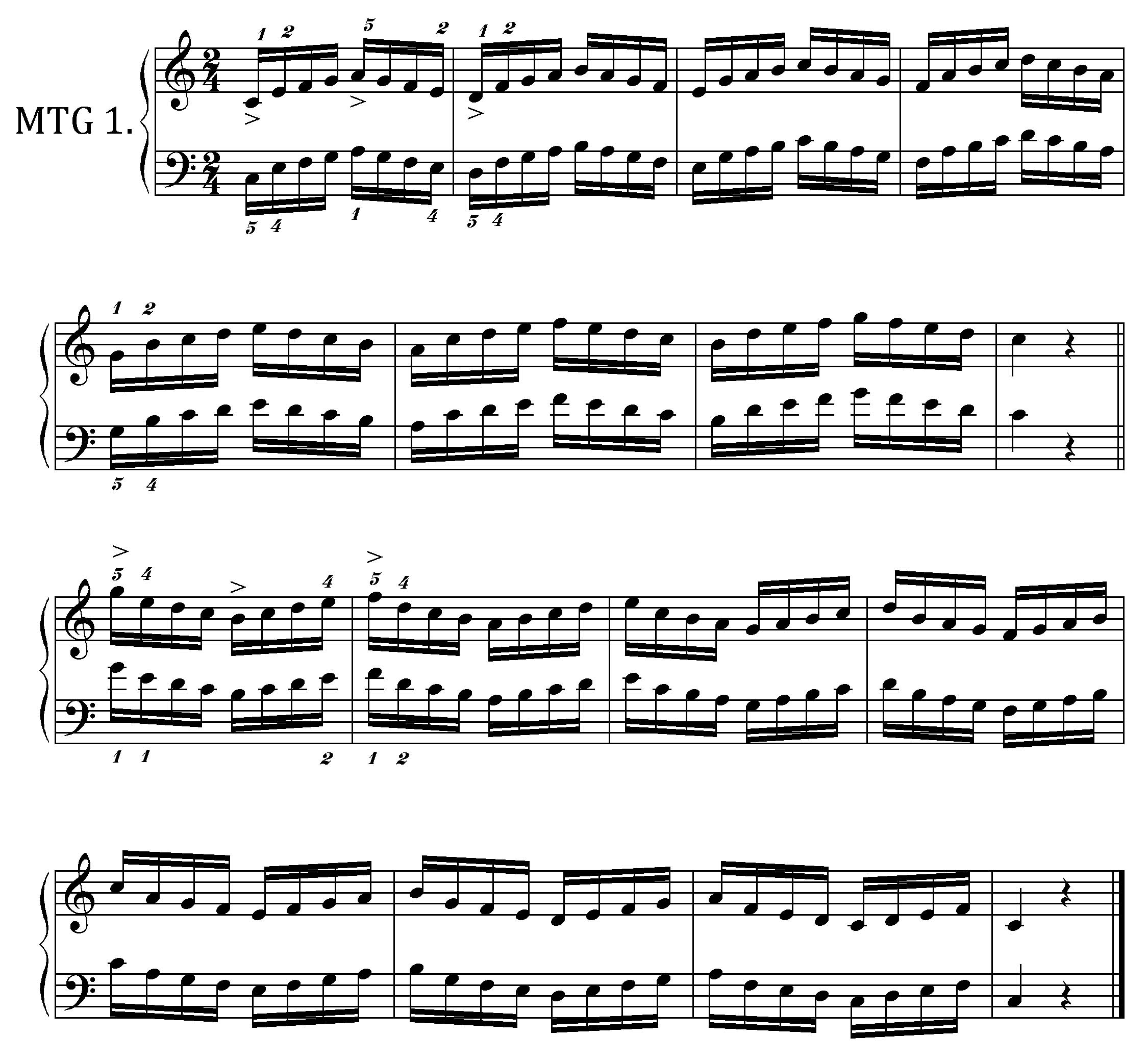
We can be more independent and 'get away from the dots' by internalising the pattern and playing from a shorthand version like this.
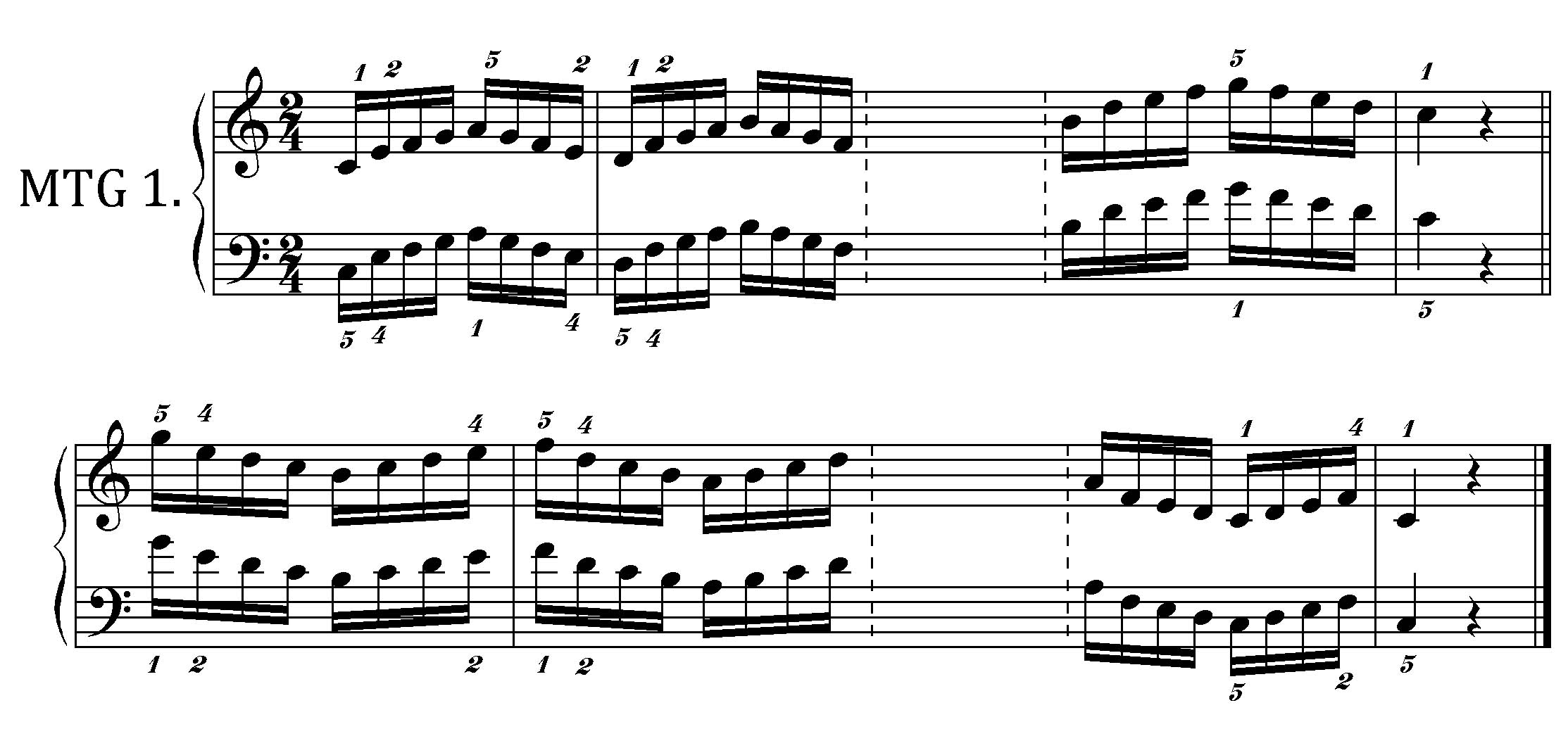
You understand that, between the dashed bar-lines, four repetitions of the pattern will creep up the keyboard note by note.
The 'gap' in the rising first half of each bar is between the lowest and second note up. If we move the gap up one note, we get this exercise (which you will learn from the shorthand).
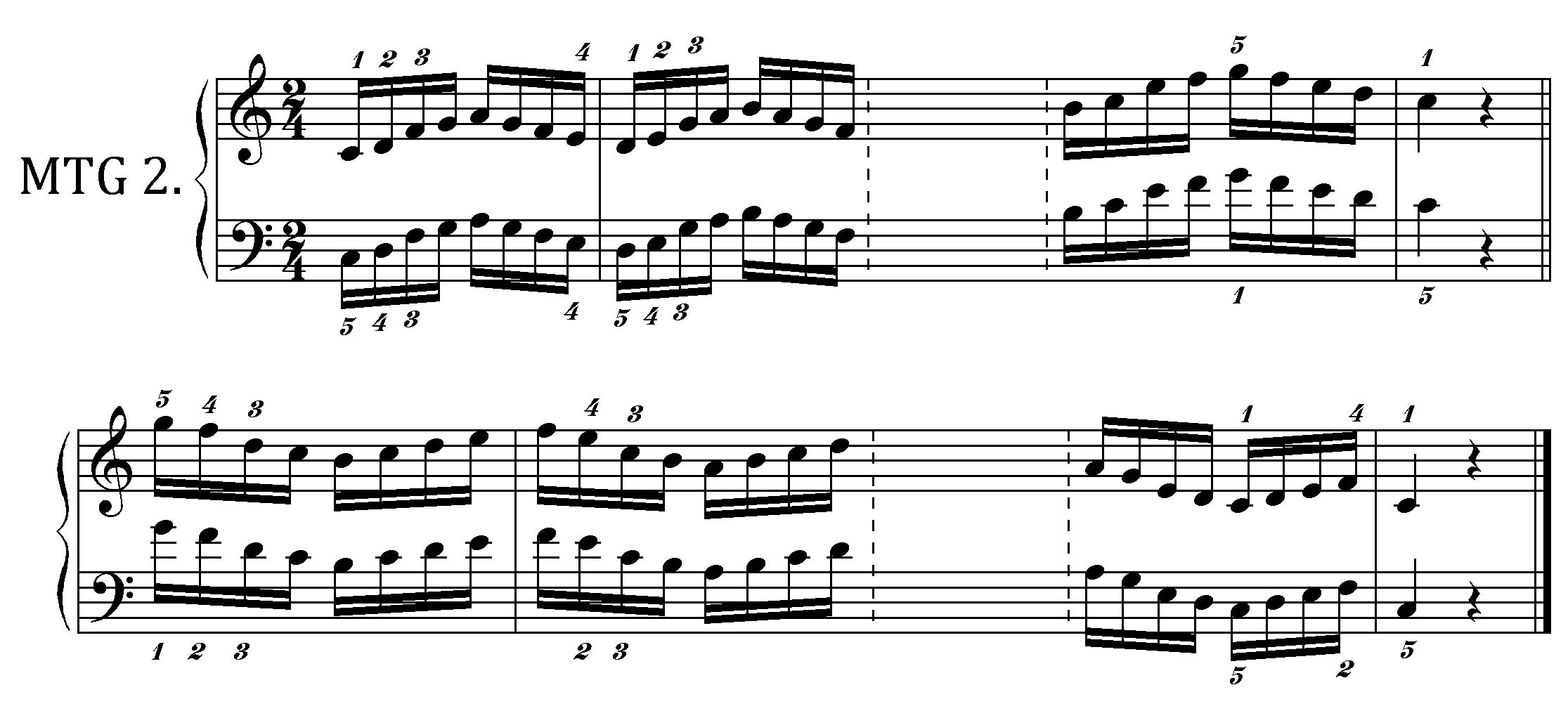
The training for a different spread of the fingers leaves a new feeling in the hand.
Intensive practice
The exercises in this series can be practiced with a held (or held and repeated) thumb. This balances the hand and develops independence of the fingers.
Caution! Approach these exercises with care!
Be sensitive to any build-up of strain in your hands, wrists and forearms, and rest and shake out tension regularly. Never 'work through the pain' - rather develop your stamina cautiously.
Here is how you would approach exercise MTG1.
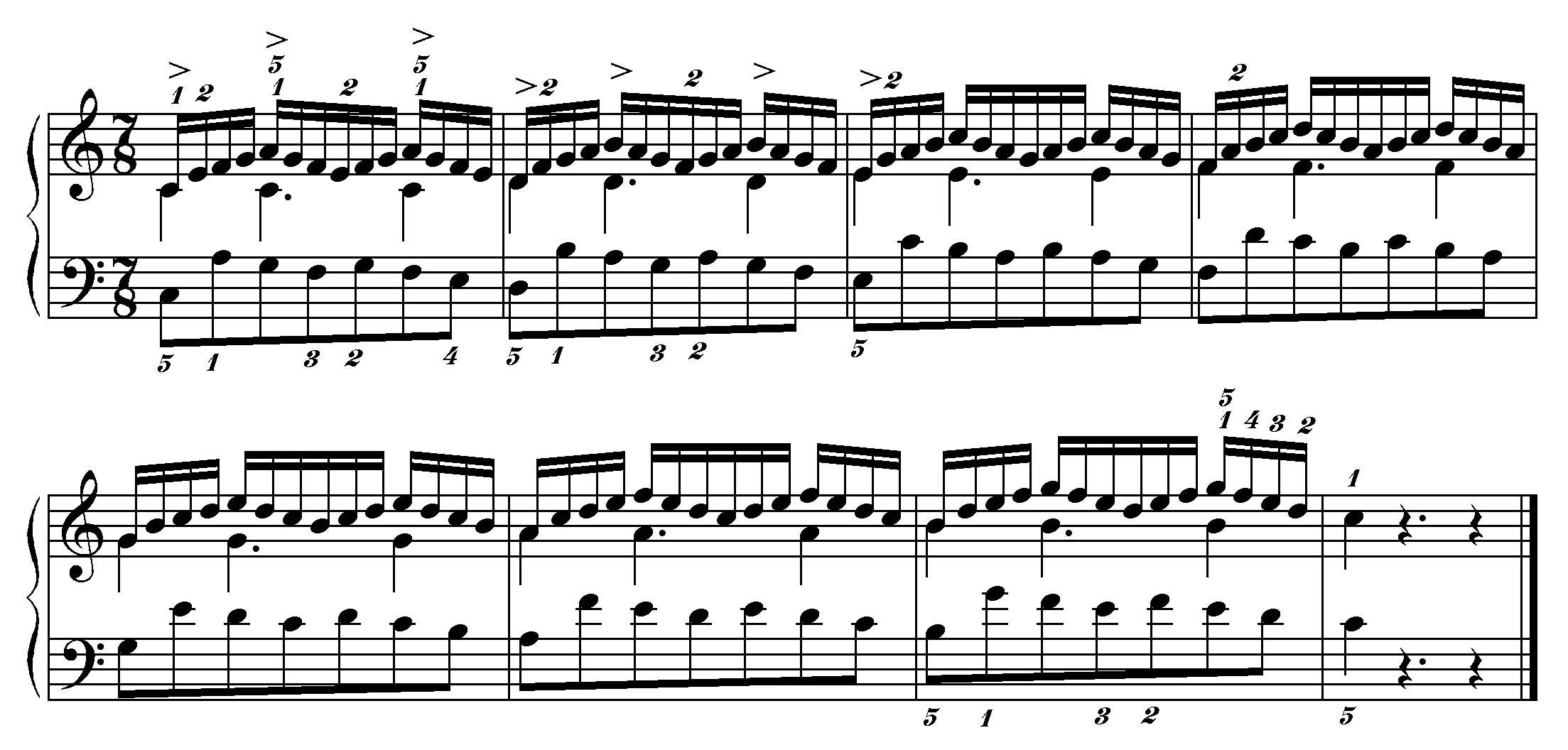
The thumb plays at the start of the right-hand pattern and with the little finger (RH5) both times it plays.
Running up and down between fingers RH2 and RH5 twice gives you the odd time signature of 7-8 (seven quavers in a bar). You don't have to count this, or think about it at all. Just play the notes equally until you've got through the quota and that's it - you've played a bar of 7-8!
(Out of interest, the count-in on the video divides the seven beats 1 2 1 2 3 1 2 |1 2 1 2 3 1 2. When you're proficient, you can count yourself in and play along.)
The left hand does not need to do this exercise, so it simply has a seven-note 'ambling around' pattern - which is rather Hanon-like, too.
We can again devise a shorthand version of these held-note intensive exercises.

You're shown two patterns to 'get the picture', and are expected to supply the missing four bars between the dashed bar lines. The last pattern is shown in full again.
Now play exercise MTG2A straight from the shorthand version MS. The right hand gap is between fingers 2 and 3.
The left hand has an even simpler 'ambling around' accompaniment.

Now here is the third possibility. The gap ion the pattern moves up one more finger, to between RH3 and RH4, and between LH3 and LH2.
This example is presented with just the shorthand version, first for two hands, then the right hand held-note intensive version.
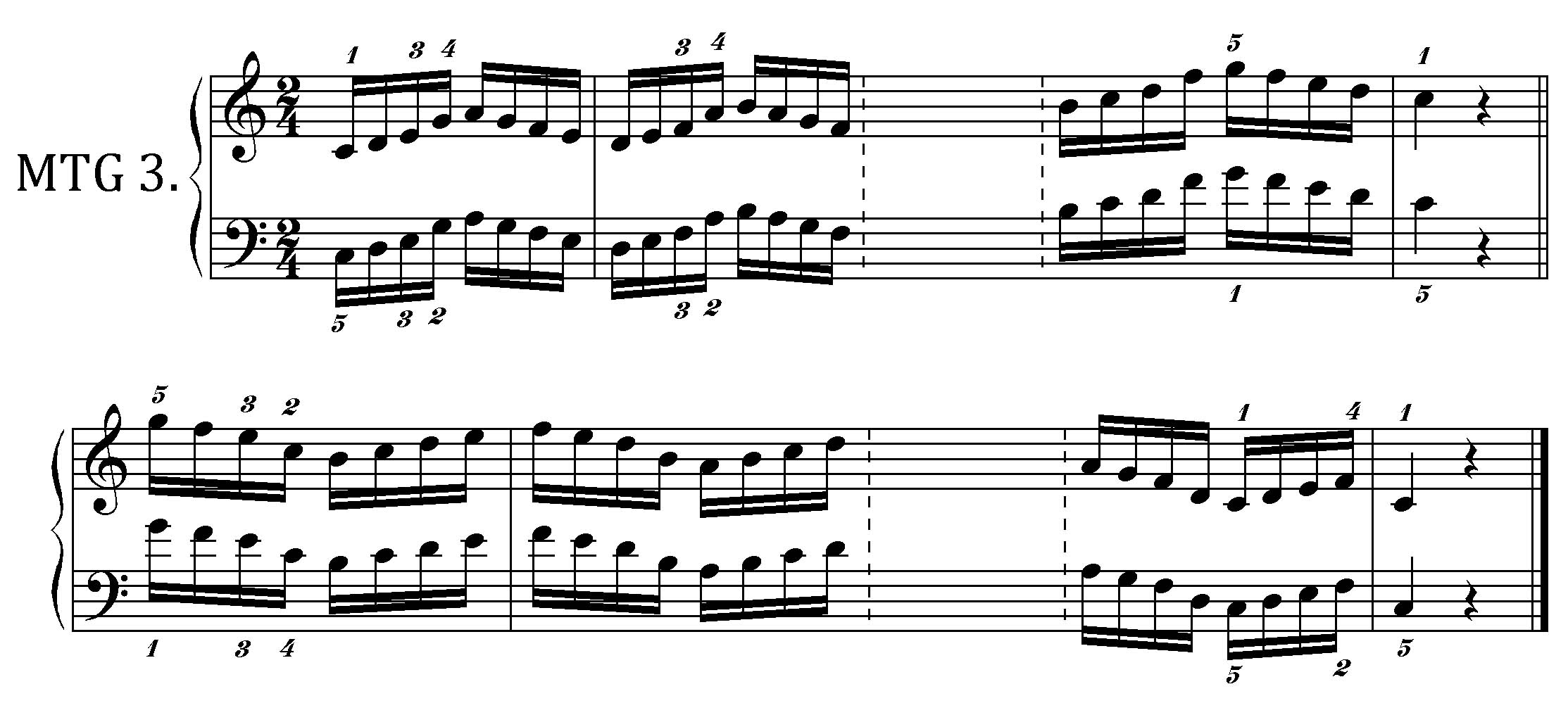

This is how the rest of the 'Mind the Gap' exercises are presented.
Now go on to Mind the Gap Page Two for the last of the simple patterns and some more advanced ways of using them.
|
OUT NOW! |
THE MUSICARTA BEAT & RHYTHM WORKBOOK At last! An effective approach to keyboard rhythm & syncopation skills. Learn more! |
ONLY $24.95! |
MUSICARTA HANON SERIESThe Exercises
Combined Patterns
Hanon in Six-Eight
In Sixths and Tenths
[Two-four] In Sixths and Tenths
[Six-eight] Held Thumbs
(Preparatory) Held Thumbs
(Two Hands) Rhythmic Variations
A to Z Series Rhythmic Variations
AA Series Hanon Canon
"Mind The Gap"
Spreading the Hand
|
The MusicartaA methodical approach to keyboard syncopation for
|
PUBLICATIONS
exciting keyboard
creativity courses
CHORDS 101
WORKBOOK

~HANON~
video course

Musicarta
Patreon
PENTATONICS
WORKBOOK
video course

Creative Keyboard
video course

BEAT AND RHYTHM
WORKBOOK
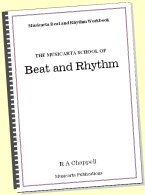
- Volume 1 -

12-BAR PIANO
STYLES WORKBOOK
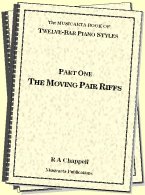
MUSICARTA MODES
WORKBOOK
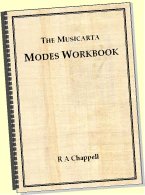
PIANO STYLE
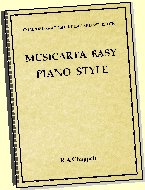
CANON PROJECT
video course
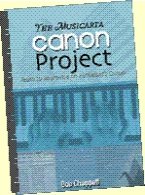
VARIATIONS
video course
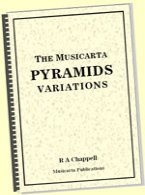
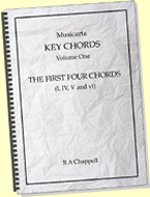
- Piano Solo -
video course
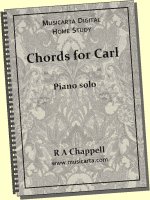
- Piano Solo -


YouTube playlists





 THE LOGO
THE LOGO
